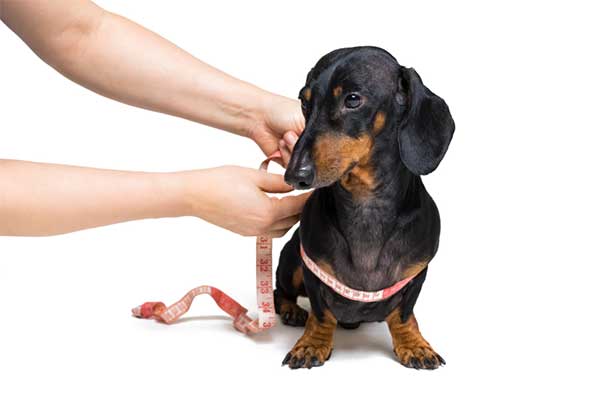
Has your dog suddenly started to lose weight?
Or perhaps you suspect that they have been gradually dropping pounds for quite a while now?

Either way, it can be extremely worrying as a dog owner when your four-legged friend starts to appear gaunt and malnourished.
There are several reasons why your dog may be losing weight, including an underlining health problem or a behavioral issue.
Below are the five most common reasons a dog will lose weight, plus advice on overcoming each concern.
Read More:
- The Common Diseases In Dogs
- How Does Low Carb Cat Food Help My Feline?
- How To Diagnose Dog Vomiting And Diarrhea?
- What to Do If Your Dog Has Cancer
- Steps to Follow When Your Dog Has Intestinal Worms
Changing dog food
If you have recently changed your dog’s diet, this could cause unexplained weight loss. In fact, this is one of the leading causes of weight loss in pets. Even if you haven’t changed your dog food brand, it is possible that the manufacturer has changed the ingredients or formula, meaning that although your dog is eating the same amount of food, they could be getting fewer calories.
If this is the case, you may want to consider a weight gainer for dogs, such as this one from Buddy & Lola, that can help them to gain weight naturally and safely.
Intestinal parasites
Even if you make sure that your dog has regular deworming treatments, it is still possible for them to be infected with an intestinal parasite or heartworm. For example, many deworming treatments do not protect against whipworms that your dog can get from ingesting eggs from contaminated water or soil.
If your dog is eating a lot of food but still losing weight, a parasite could be the cause. Fortunately, these are easily treated with medication.
Diabetes
If you have an older dog, especially a female one, then diabetes could be the reason your companion is losing weight. Dogs who suffer from diabetes struggle to get energy from glucose and therefore try to convert fat or protein into glucose instead, causing weight loss.
Dogs with diabetes tend to lose weight and muscle mass very quickly and may show signs of excessive thirst. If you suspect your dog may have diabetes, you should make an appointment with your vet as soon as possible.
Dental problems
Dogs who have gum disease, gingivitis, or infected teeth are likely to experience pain when eating, making it difficult for them to eat, which leads to weight loss. Other common symptoms of dental disease are bad breath, excessive drooling, and swollen or bleeding gums. If dental disease is left untreated, it can lead to heart, liver, and kidney problems.
Cancer
There are many different types of cancer in dogs, with many not showing any clear symptoms until they have spread significantly in the body. Cancer is much more common in older dogs, but it can occur in younger ones also. Weight loss can occur with all cancers but is most common with osteosarcoma, hemangiosarcoma, and lymphoma.
If you are worried your dog’s weight loss may be due to cancer, you should make an appointment with your vet immediately. However, as there are so many causes of weight loss in dogs, many of which can be easily treated, try not to panic unnecessarily before you have had a diagnosis.
Popular Posts:



